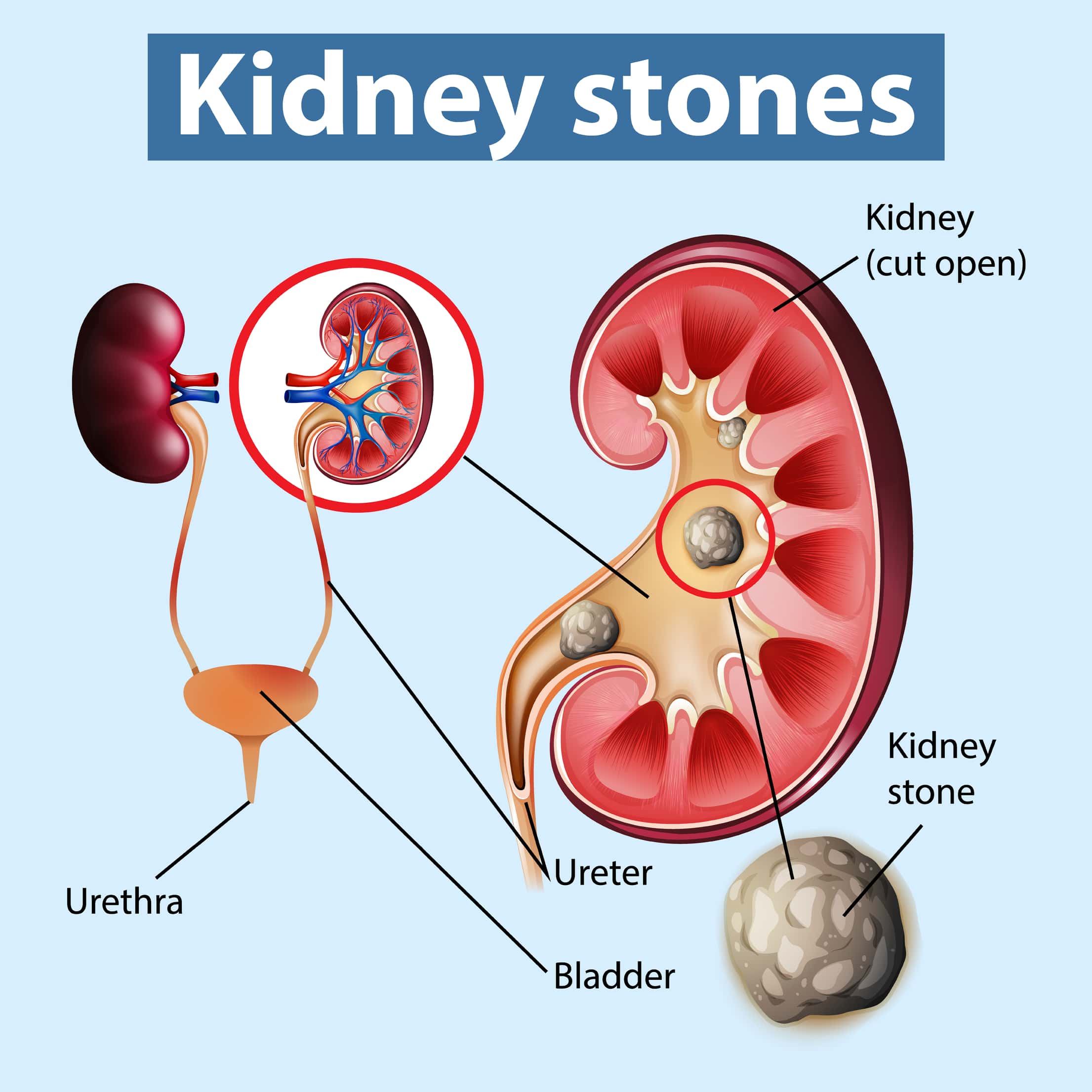
What Are Kidney Stones?
Kidney stones are also termed as renal calculi, nephrolithiasis or urolithiasis. Urine contains many dissolved salts and minerals. High level of these salts and minerals in the urine can lead to formation of hard deposits called kidney stones. They start as small granules and gradually grow larger in size, filling the hollow structures inside the kidneys.
Some stones stay in the kidney and do not cause any problem. Sometimes the kidney stones travel down the ureter (the tube between kidneys and bladder). If the stones reach the bladder, they pass out with urine. Sometimes the stones get lodged in the ureter blocking urine and causing pain.
Homeopathic Treatment Of Kidney Stones
Although kidney stones are considered a case for surgery under the conventional mode of medicine, natural homeopathic medicines can break down and dissolve kidney stones or help them pass out without surgical intervention. In fact, natural medicines have shown the most remarkable results in treating the recurrence of kidney stones.
Homeopathic Medicines for Kidney Stones
The well-known homeopathic remedies which have exhibited outstanding effectiveness in the treatment of kidney stones are Berberis vulgaris, Hydrangea Arborescens, Lycopodium Clavatum, Sarsaparilla Officinalis, and Cantharis Vesicatoria.
When and How to use Berberis Vulgaris?
This is the first line of treatment used by most of the homeopathic physicians to treat kidney stones. The main indication of the medication is pain in the left side kidney that radiate to ureter and urinary bladder while urinating, along with increased frequency of urination. Berberis can also be used in cases with a recent diagnosis of kidney stones or if patient is asymptomatic.
Mother tincture (Q) of Berberis Vulgaris is the suggested potency for kidney stones. It can also be used in 30C potency also. However, it should not be used without advice of physician.